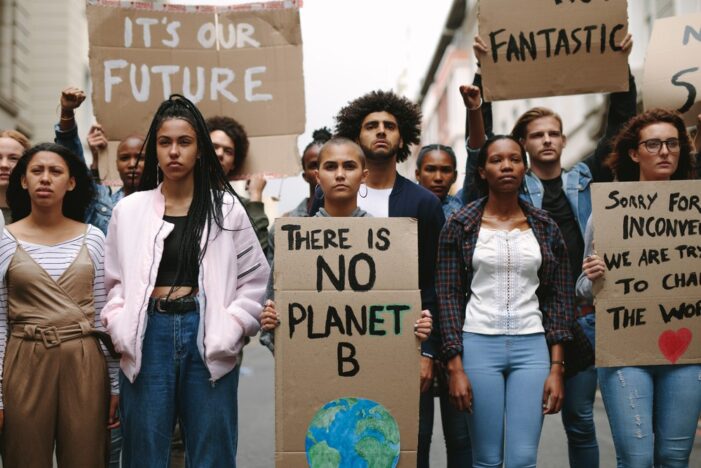By JR Holguin
Scientists predict that over the next 30 years, close to 150 million people will move due to climate change affecting areas around the world; most of those seeking refuge are women and girls who are more vulnerable to violence based on their gender.
The movement known as “climate change migration” is when an individual or a group of individuals are forced to or voluntarily choose to leave their usual residence due to a sudden or gradual shift in the environment, either temporarily or permanently, within a state or across international borders.
During the 50th session of the Human Rights Council, UN High Commissioner for Human Rights, Michelle Bachelet, spoke of exploring the tie “between climate change and violence against women and girls through a human rights lens.” Bachelet noted that though climate change affects the entire world, it is “women and girls who often suffer its harshest and most violent consequences.”
According to the UN Environment Program, women are predicted to make up 80 percent of people displaced by climate change, placing them at a significantly higher risk of violence, including sexual abuse.
Sexual abuse is a terrifying facet of life for migrants and refugees, who are in danger of attack while in temporary shelters, tents, or camps. The threat of child, forced, and early marriages, as well as human trafficking, that traveling women and girls confront dramatically exacerbates the problem. Cross-border travel for women and girls who are refugees or migrants is frequently laden with hazards and issues, such as sexual and gender-based violence, mental distress, physical harm, and many forms of exploitation, including human trafficking.
Countless reports worldwide of cases reported by women and children are ignored, or at times, the perpetrators are law enforcement. Between 2016 and 2022, Human Rights Watch recorded 11 cases of sexual abuse against refugees and asylum seekers from Sudan and Yemen and one child. All six women, one who identified as a transgender woman, said men raped them. In some cases, victims were assaulted more than once. A mother also reported that a man raped her 11-year-old daughter. Some victims said police declined to file incident reports, and others were afraid to report the incident. There was one incident of a police employee who sexually harassed a victim when she tried to report a rape.
It’s important to note that, at times, those in authority are the perpetrators who sexually abuse migrants and asylum seekers. Including here in the United States, authorities on the southern border have been known to sexually assault those seeking refuge. Human Rights Watch released a 26-page report that provides details of statements from asylum officers of the US Citizenship and Immigration Services about the conduct of personnel in the Department of Homeland Security.
Bachelet told the UN Council that it is imperative that any climate change policy and approach have the human rights of women and girls positioned at the forefront and that no one is left behind. She provided five steps to ensure this:
They acknowledge that climate change and violence against women and girls are connected.
- Women in power must be completely involved in climate issues and actions, as their insights will help protect women’s rights better.
- States must improve the development of “gender-responsive environmental and disaster risk reduction” policies, initiatives, and budgets.
- States need enhanced accountability structures with zero exemption for perpetrators “no matter if they are spouses, family members, religious leaders, relief workers or government officials.”
- Governments must act quickly to uphold, defend, and execute their commitments under international humanitarian law to women, girls, and particularly female environmental human rights advocates.
Whether it’s climate change, wars, or global pandemics, the world has been and continues to be fraught with danger for women and girls. Be it the escalating attacks on women’s autonomy over their bodies, mounting barriers to girls’ leadership and education, and reports of women being murdered or going missing simply because they are women. The fight for gender equality often feels like the evil outweighs any progress. Bachelet highlights that leaders must take that action now because as nothing is being done, “the lives, safety, and dignity of millions of women and girls will continue to hang in the balance.”



